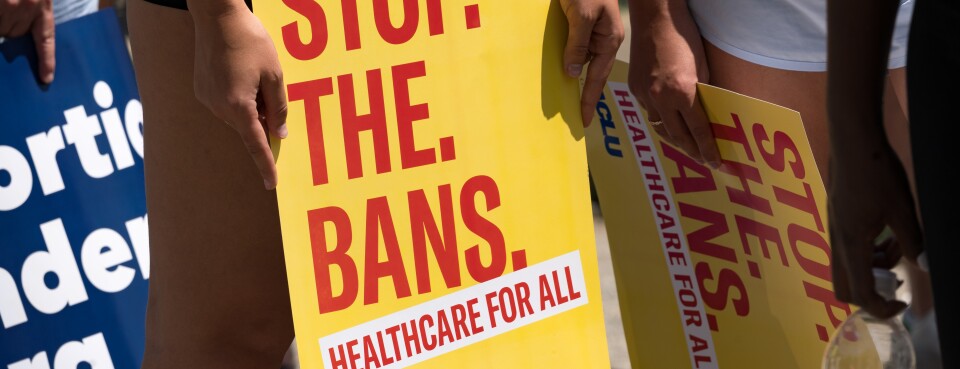[ad_1]
COLUMBIA, S.C. (WIS) – At a time experts say America’s children are facing a mental health crisis, a report from earlier this year found more than half of South Carolina’s public schools lack access to a licensed counselor.
While the state is implementing longer-term solutions to address this through the South Carolina Department of Health and Human Services, the issue is urgent, especially following a spike during the COVID-19 pandemic.
“We’ve seen anxiety, depression, mental health issues surface with students in public schools, not just in South Carolina but across the country, at a rate that wasn’t there before, at a dramatically higher rate,” DHHS Director of Strategic Communications Jeff Leieritz said.
Earlier this year, Gov. Henry McMaster requested a statewide audit into the mental health services available in South Carolina schools. The audit — completed by the Department of Health and Human Services, which sets Medicaid reimbursement rates for these school services — found there is one counselor for roughly every 1,300 students, which DHHS Director Robbie Kerr called “unacceptable” in his letter to McMaster, presenting the review’s findings in May.
Leieritz said their goal is to cut the 1-to-1300 ratio in half within the next year and then in half again in the years that follow.
DHHS believes a new program, funded by a two-year grant from the state and developed by the University of South Carolina’s Department of Psychology, will help more students with their mental health needs as South Carolina works to increase access to resources and counselors.
The John H. Magill South Carolina School Behavioral Health Academy will soon be available to every staff member in South Carolina public schools, from teachers to principals to food services.
It’s online and self-paced, with courses covering topics like prevention, early intervention, classroom support, and how they can help their school navigate the mental health crisis.
“We know the longer students suffer with mental health issues, the more they tend to get worse, and then you see corollary problems, like problems with school attendance, perhaps problems with discipline, increased likelihood of falling behind, perhaps failing a grade,” USC Professor of Clinical, Community, and School Psychology Mark Weist said.
The initial overview course is 90 minutes, while subsequent courses range from six to eight hours, Weist said, with the final one on treatment and more intensive intervention geared toward counseling staff and special educators.
While the program is available to any staff interested, it is optional, as Leieritz said they are not looking to put more on teachers’ plates or to replace licensed counselors with other school staff.
However, he said teachers and staff have been stepping in to help their students, so they want to equip them with the tools they need if they do so.
“We found in our audit that too many times, there was a student who was in crisis, a mental health crisis, and because there was not a mental health counselor available in that school, you had the teacher or assistant principal or the principal or the nurse or some support staff who was dealing with the child who was in the mental health crisis,” Leieritz said. “That’s not what they’re educated for, what they’re trained for. It’s not the ideal situation.”
Weist said they will also be working more intensively through the program with 12 districts — three each in the Pee Dee, Lowcountry, Midlands, and Upstate. Two districts are piloting the first module of the course this week, and the program may be available to staff across South Carolina as early as next week.
The DHHS audit also found students are more than 20 times likelier to access mental health services in schools than outside of them.
Weist added strong young mental health programs can boost students’ success in all realms of their lives.
“The earlier we provide effective intervention, the more effective it’s going to be,” Weist said.
Other recommendations from the audit to address the counselor shortage have already gone into effect, including an adjustment in Medicaid reimbursement rates.
Most of the state’s school-based counselors are employed through the South Carolina Department of Mental Health, and the audit found the system is set up to incentivize schools to use these counselors.
The former Medicaid reimbursement rate that DMH-enrolled counselors receive, of $77 for a half-hour session, was more than double the $37 rate a private provider had received.
In July, the department eliminated those rate disparities, believing giving schools more freedom and choice to hire private counselors will help increase access to services.
Among other recommendations, Director Kerr advised using telehealth to increase access to services and considering a three-year phase-in to require school counselors to be fully licensed.
While that is already a requirement for private counselors who work in schools, DMH counselors are excepted from the requirement.
Notice a spelling or grammar error in this article? Click or tap here to report it. Please include the article’s headline.
Copyright 2022 WIS. All rights reserved.
[ad_2]
Source link


